'˜The most rewarding role I've ever had' - a day at work with Hartlepool nurse Louise
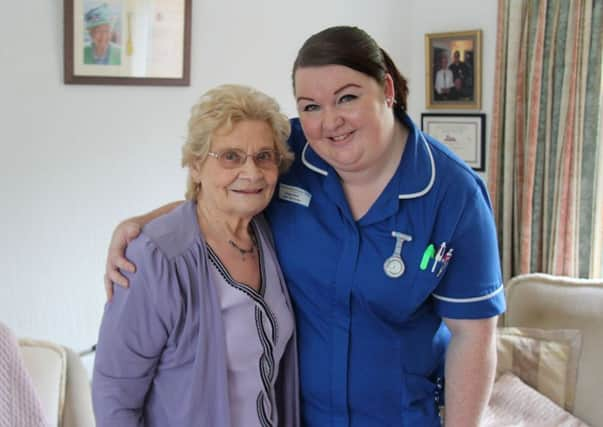

Louise Parkin helps people living with chronic lung conditions. That’s everyone from smokers to people dependent on alcohol.
But she admits: “It’s the most rewarding role I’ve ever had.”
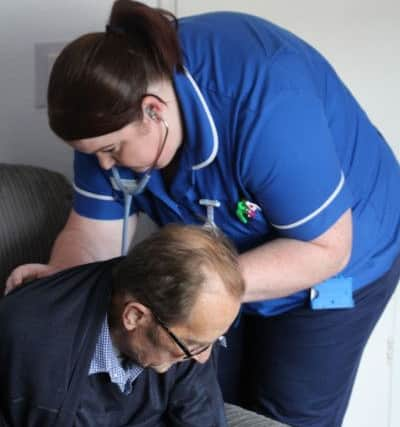

Chris Cordner reports.
Advertisement
Hide AdAdvertisement
Hide AdFrom 8am onwards, Louise Parkin helps people with some of the most severe respiratory conditions in Hartlepool.
She is a specialist respiratory nurse in the North Tees and Hartlepool NHS Foundation Trust’s Hospital at Home team.
It’s innovative. It cares for patients with chronic obstructive pulmonary disease (COPD) in their own homes.
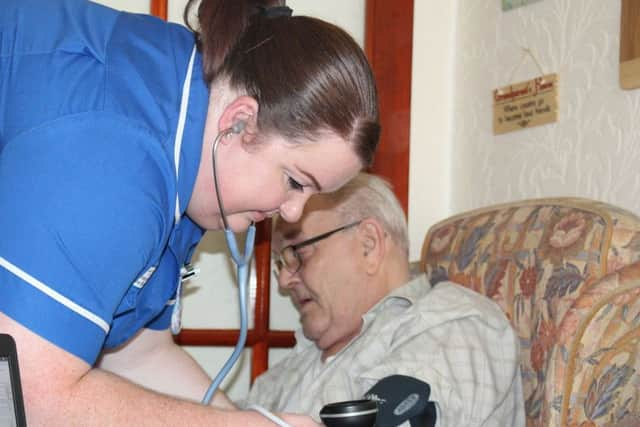

And it is vital.
As we drive to her first patient appointment, Louise says: “I always thought I would be a hospital nurse because I found the role so rewarding.
Advertisement
Hide AdAdvertisement
Hide Ad“Now I’ve tried this, I can’t see myself doing anything different.”
Her first visit is to Ken, a 71-year-old referred to the service after suffering with chest pains.
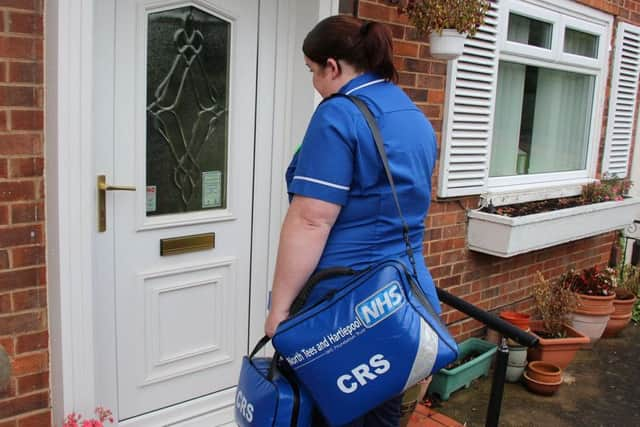

“Do you find you cough more at night than you do during the day?,” asks Louise.
“I think we need to have a look at changing your inhaler. And how has your eating and drinking been lately?” she probes as she gets to the bottom of Ken’s problems.
Advertisement
Hide AdAdvertisement
Hide AdShe plans a return visit and tells Ken “I’ll drop your GP a note and ask for a change for your repeat prescription for an inhaler.”
It’s visits like this that have helped the trust cut hospital admissions by around 20% in the service’s first year.
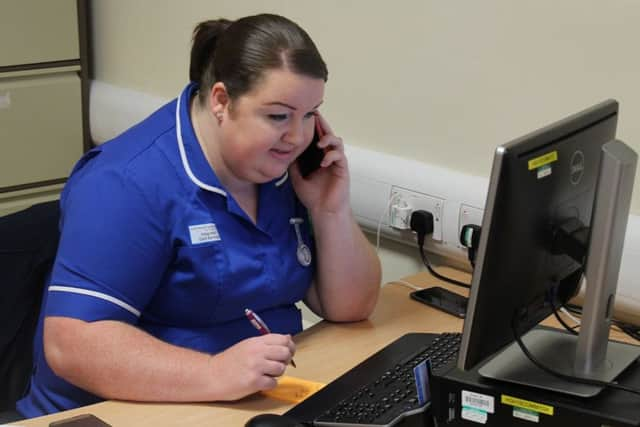

Nurses are usually able to provide the care in a patient’s home and help with any issues there and then.
The next patient is a man in his 50s who continues to heavily smoke. He is also alcohol dependent - and that can make treating him even more challenging.
Advertisement
Hide AdAdvertisement
Hide AdLouise says: “We have told this patient that we are reaching the point where we are running out of options to help him. But he still continues to smoke and his condition is deteriorating.”
The drinking presents its own problems for Louise and the team.
They try to plan morning sessions to make sure he’s at home.
But she admits: “This particular patient is sometimes not even at home when we visit, which is clearly very unhelpful.”
Advertisement
Hide AdAdvertisement
Hide Ad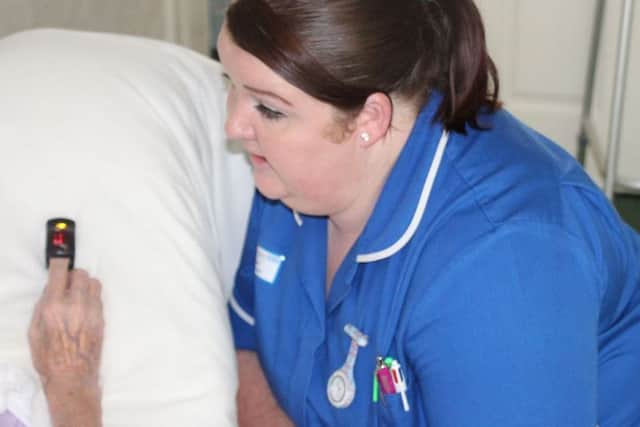

It’s just one of the many challenges the Hospital at Home team have, but is also part of the variety which makes the role so interesting and rewarding.
“When you knock on a patient’s door you’re never quite sure what to expect on the other side and that’s the challenge of it,” said Louise.
Next on the list is 84-year-old Norma, referred from a hospital clinic.
She is following all the advice given to her and has made huge progress.
Advertisement
Hide AdAdvertisement
Hide AdShe said: “The service is fantastic. The team are very impressive and have always been available for advice or help when I’ve needed them.”
She is one of many success stories.
After a brief trip back to the office to see members of the team and make any enquiries, Louise heads back out to her next patient.
Fred is a 79-year-old who’s been using the service for several months.
Louise said: “Fred gets breathless and, unfortunately, he does continue to smoke.
Advertisement
Hide AdAdvertisement
Hide Ad“It usually takes him all morning to pull himself around so we would normally visit him in the afternoon.
“Like many of our patients, one of Fred’s issues is he gets anxiety when he gets breathless which makes it worse. We try to teach our patients diversion techniques to distract them – even something like counting the patterns on the wall – helps break the cycle.”
Louise’s next and last patient of the day is an 86-year-old lady, who is an example of the many different challenges the team can face.
Louise explains: “This lady was recently discharged from hospital, where she spent time being treated for pneumonia. She is 86 and very frail now, god bless her, so that’s why we need to put a plan in place for end of life care while she is in a position to express her wishes before it’s too late for her to do so.
Advertisement
Hide AdAdvertisement
Hide Ad“We need to speak to the district nursing team and arrange for them to make a home visit and get to know her, ahead of end of life care.”
One of these issues is around the patient’s consent to do not resuscitate. Otherwise known as a DNR, this is a legal order to withhold resuscitation if the patient’s heart were to stop.
Afterwards, Louise says: “It’s really sad to see patients who we can no longer help. But the positive thing is we are able to help patients like this and make whatever time they have left as comfortable as it can be.
“It’s just another reason why this is the most rewarding role I’ve ever had.”